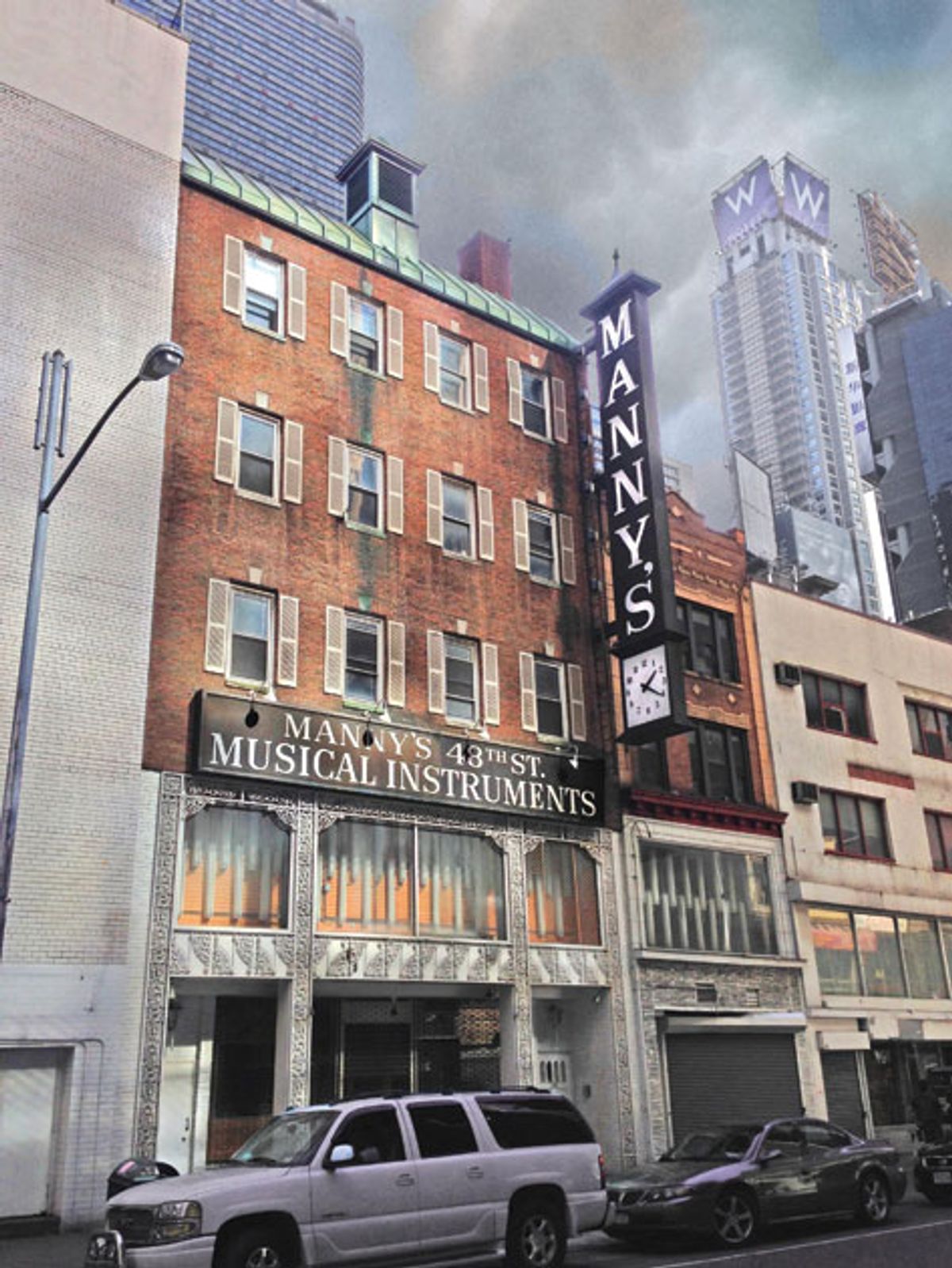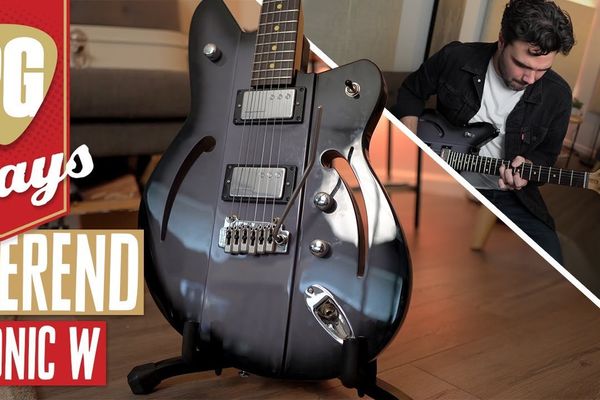
There are hints of a music-retail renaissance in the air, and the former man behind Hamer likes it.
This is a love story. It’s about an affair I’ve been having for many years, and its allure is just as strong today as it was the very first day. I adore music shops. I’ve been conditioned by a lifetime of fond memories—buying from, selling to, and working behind the counter in various emporiums of music merchandise. Even when I see a photo that was taken inside a guitar store, I wish I were there to scour the walls and aisles for a piece of gear I cannot possibly do without.
Over the years, the shift from small, privately owned operations to giant corporate-style outlets has somewhat dampened my enthusiasm, yet I can still find interesting things in those shops too. And while the ability to scroll through thousands of items improves the scope of online shopping, I feel something lacking. Can the virtual world or the big-box store truly replace the experience of an old-school brick-and-mortar music shop?
Like many musicians, my introduction to the music-store adventure began as a scouting mission with parental guidance. I’d taken piano and violin lessons in school, but I really wanted to play guitar. I was hooked when a classmate introduced me to the Ventures. Compared to my violin, the electric guitar seemed so modern. It was a shiny, sexy musical instrument that was as loud as an Indianapolis racecar, so I naturally wanted one in the worst way. I badgered my parents so relentlessly that their only hope for peace was to take me seriously, and because there were no school programs for guitar, it was down to the local music store we went.
As I stepped through the door into the small storefront, I saw rows of saxophones, trumpets, and drums. There were racks bulging with sheet music and showcases full of percussion instruments and all sorts of musical paraphernalia. Even the smells seemed exotic, and it all looked so interesting. Both the customers and shop personnel dressed differently and spoke an unfamiliar language. I sensed a passion in the way folks were relating to the instruments and each other, and I realized these were my people.
I quickly located a display of electric guitars and stood before a Mosrite Ventures model. It was like the movie scene when Indiana Jones discovered the golden idol of the Chachapoya—I knew I had to grab it and run. Instead, my dad and I came away with a rental Gibson LG-1 student-model acoustic and an appointment for six lessons, but I was still smitten. And from that day on, a lot of my musical education came from hanging out in guitar stores. Not so much from lessons, but from the contacts I made and the information I absorbed, either by asking or eavesdropping. It was like a clubhouse.
Old-school music shops provided the immediacy of real-time, three-dimensional interaction with other musicians. There was no hiding behind a screen name or digital slight-of-hand going on. When somebody picked up an instrument and played it, you got an instant read on whether his or her opinion was valid—no retakes and no cut-and-paste. Many of the salespeople were pro musicians who had first-hand knowledge, not just sales-seminar training. Even the big shops on 48th Street in New York and Chicago’s “Music Row” on Wabash Avenue had a vibe all their own. Sure, they were all trying to sell you, but there was an art to it as opposed to indifference.
Since its inception, the guitar business has been a sort of cottage industry. The entire music-instrument industry today is still a fraction of the size of Ford Motor Corporation or even Home Depot. (Let that sink in for a moment.) Yet, there has been no shortage of MBA crusaders and private-equity firms stepping in to operate music businesses as though they were ExxonMobil. There’s nothing wrong with running a tight ship and taking your business seriously, but at some point I think that some of the music industry lost the plot, especially at the retail level. I like a good deal as much as the next person, but I’d rather pay a little more and have the experience of a knowledgeable sales staff at my disposal.
The good news is that there’s a small trend in MI retail pointing to a return to the musician’s clubhouse vibe. Some blend this approach with a strong online presence, backed up with real one-on-one telephone relationships. I see boutique stores all across the country that carry a good selection of new, used, and vintage gear, and provide a friendly place to explore them. Some of the pre-corporate shops never went away and are starting to enjoy a renaissance of sorts. These stores have doubled down on customer service and music instruction, and use social media to create a sense of community. Others specialize in unique or rare products, championing small builders while still offering the big names. They even have comfortable chairs! In a way, it’s even better than before.
Will the pendulum’s wrecking ball have its sweet revenge on the faceless corporate-raider outlets? Only time will tell if leather couches and mood lighting can save the day, but I’m hopeful. Thankfully, many of the new breed of shop owners are business-savvy without being greedy. I’m stoked that there are shops with passionate staffs eager to impart information and not just empty your wallet. It’s my hope that any musician can find a local shop that helps them learn and grow, and feel a sense of wonder when they walk in the door.

